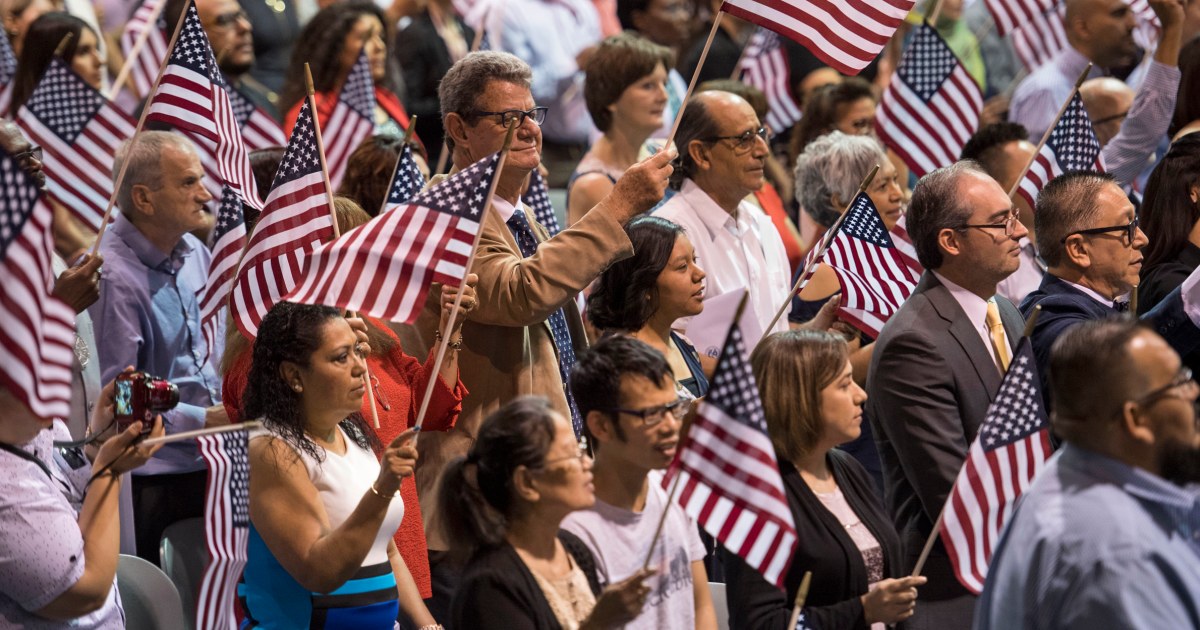
A new report released this week highlights the “outsized role” that newly naturalized voters could play in Arizona, a key swing state that some have called an epicenter of the fight for voting rights.
Between 2016 and 2020, Arizona became home to almost 64,000 new U.S. citizens, according to the report compiled by several voter advocacy, labor and immigration groups.
That number is more than six times larger, according to the report, than Arizona’s margin in the 2020 presidential election, which handed the state to Joe Biden with an edge of just over 10,000 votes.
Amid a race for governor that includes a Trump-backed candidate who still denies the validity of those results, and a competitive Senate contest that could play a major role in determining the balance of power in Congress come November, the research identifies Arizona as one of the states in which the voting behaviors of new citizens could have the biggest impact.
Researchers from a number of advocacy organizations ranked the “political importance” of states using the number of newly naturalized citizens, the average presidential election margins in the three most recent elections, and the presence of competitive Senate and gubernatorial races, among other metrics.
The findings are based on naturalization data from U.S. Citizenship and Immigration Services (USCIS) between 2016 to 2020, as well as naturalization applications that were approved in 2021.
The data shows over half of those in Arizona who’ve become citizens since 2016 are originally from the Americas, including Latin America and the Caribbean, while more than a quarter came from Asian and Pacific Islander countries. About 57% are younger than 45, and the largest number of them live in or around Phoenix, followed by Tucson, which has the second-largest numbert of newly naturalized citizens, and then Yuma.
The report additionally points to voting barriers that have persisted in the state. For example, more than 10,000 citizenship applications, which can take more than a year to process, are backlogged in USCIS offices in the state, according to the report, which cites agency data.
Nicole Melaku, executive director of the National Partnership for New Americans, an immigrants rights group that helped compile the data, said in a news release that newly naturalized citizens will be an “electoral force to reckon with.”
“With so many anti-immigrant sentiments lingering across our nation and the current attempts to restrict our voting and civil rights, the stakes cannot be higher,” she said.
In March, after nearly a hundred voting bills had been introduced at the Arizona state Capitol, Doug Ducey, the state’s Republican governor, signed a bill into law requiring proof of citizenship to vote by mail in the state. The action prompted a lawsuit from the Department of Justice, which called the restriction a “textbook violation” of federal law.
In mid-August, another lawsuit was filed against Arizona by Asian Americans Advancing Justice, an advocacy group, alleging that Ducey’s proof of citizenship law and another, which allows county recorders to instigate investigations into whether voters are citizens, serve to “suppress voters of color and naturalized voters.”
“The state government of Arizona has a long history of seeking to unjustly restrictor outright deny the voting rights of voters of color and naturalized voters,” the lawsuit states.
Follow NBC Latino on Facebook, Twitter and Instagram.
Source: | This article originally belongs to Nbcnews.com









